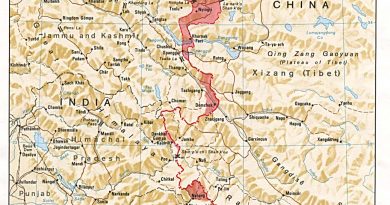U.S. and Taliban Truce Talks are Underway
Jungin Kim
Associate Editor
In what could be the beginning of the end to a nearly 18-year war, the U.S. and the Taliban are negotiating the terms to a truce. U.S. officials met with Afghan President Ashraf Ghani on February 14, in Munich to iron out the details of the truce. According to AP News, U.S. Defense Secretary Mark Esper noted that the deal looked very promising, hoping for the long-awaited return of U.S. troops stationed in Afghanistan.
Though initially cynical about the negotiations, Ghani left the conference in high spirits—the unnamed representative for the Taliban expects to sign the truce on February 29.
The war in Afghanistan was a swift response from the Bush Administration and Congress in retaliation to the notorious attacks made on the World Trade Center on September 11, 2001. According to BBC, Afghanistan was believed to be the headquarters of the Taliban, prompting U.S. airstrikes and the deployment of ground forces. Though the coalition against the Taliban was successful in rooting out the organization, other splinter-cell groups formed with similar anti-U.S. rhetoric. When it was believed that the Taliban had been adequately subdued, NATO forces withdrew troops in 2014. However, the Taliban was able to regroup and continued their crusade, bombing government buildings and densely populated civilian areas.
In recent years, the Taliban has replenished their arms and personnel, largely relying on their income from the opium trade, as well as taxing travelers, racketeering, and other small operations. Being dependent on the opium trade to bolster its crippling economy, there is little that the Afghan government is able to do to directly damage the Taliban’s resources. Moving forward, cooperation between the White House and Afghan leadership is crucial to finally overcome the Taliban and their vast network, emphasizes AP News.
Though there remains around 12,000 troops stationed in Afghanistan, the plan highlights an 18-month period of withdrawal. Critics say that the evacuation of U.S. troops will again destabilize the region, allowing for the Taliban to recover again, or for the possibility of a new insurgency emerging. It is also feared that the Afghan government will not do enough to keep the Taliban subdued without foreign help.
Esper refused to answer whether all troops would be withdrawn or just a majority. However, Esper also commented on how he had strong trust in Ghani to fulfill his share in order to unite Afghanistan.
Many in the U.S. believe that this deal is a political move by the Trump administration in order to cater to his base. Al Jazeera reports that in many of his campaign speeches, Trump emphasizes that he will be the president to bring troops back home. During his State of the Union address, President Trump said that, “We are working to finally end America’s longest war and bring our troops back home.” After the repositioning of troops in Syria, many are wary of the possible unknown ramifications of a complete evacuation from Afghanistan, and the possible power vacuum that could be left in the region in the wake of its departure.

